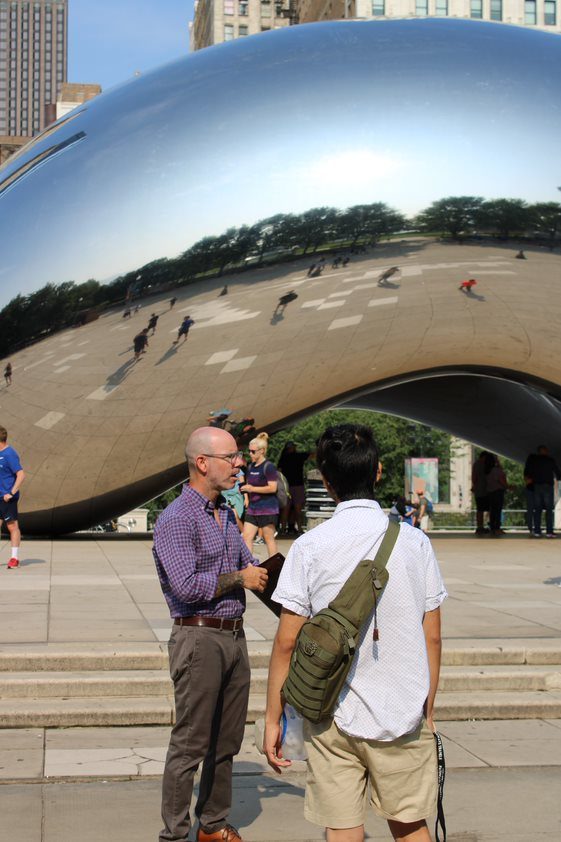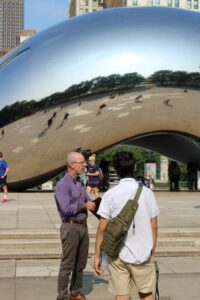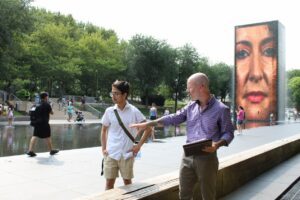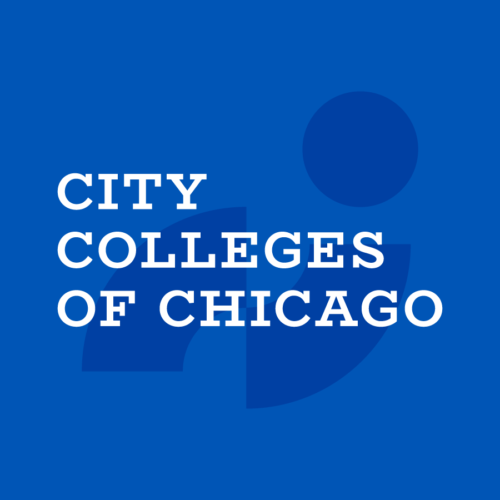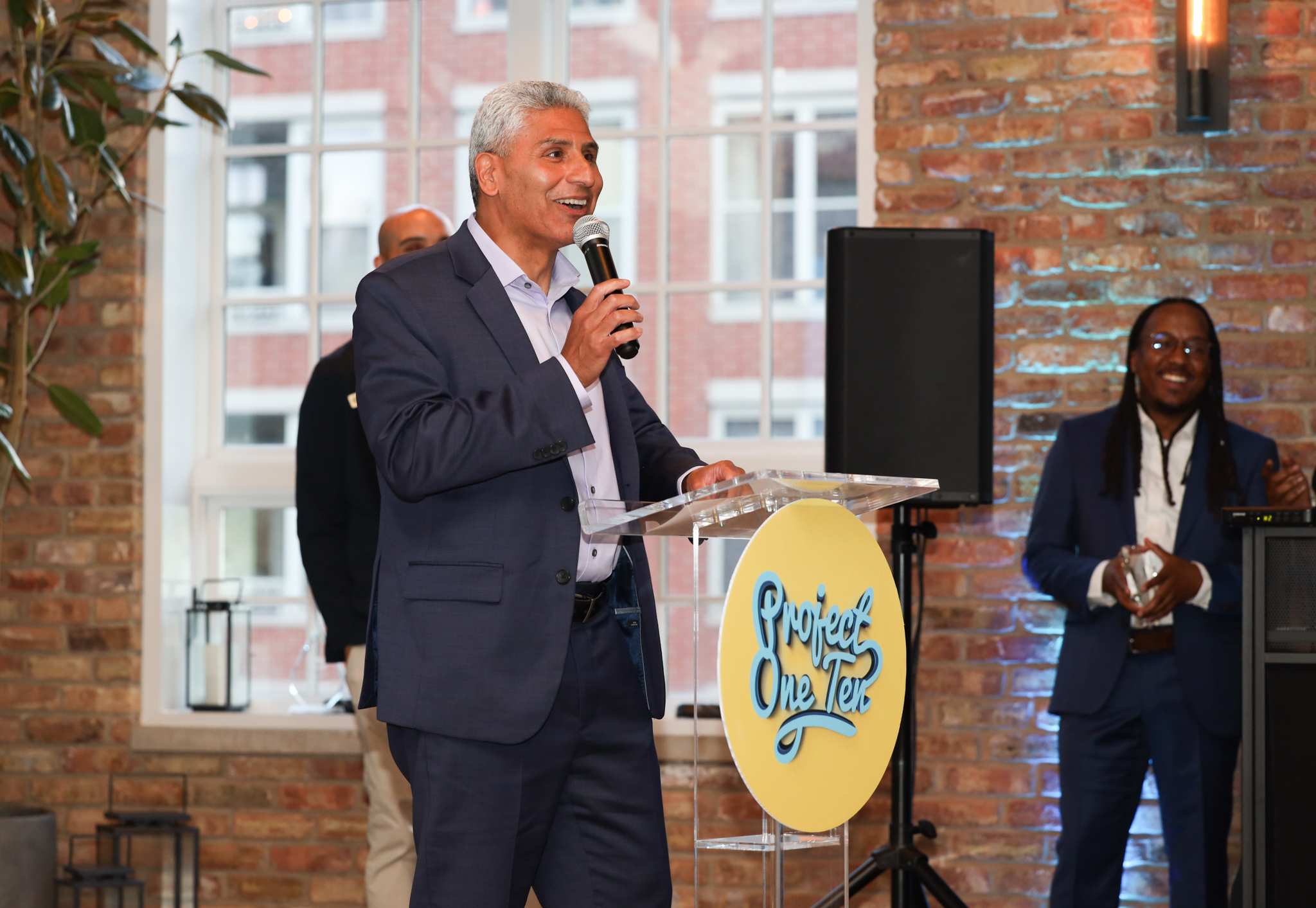Harold Washington College professor John Whalen is introducing students to college – and using the city as an extension of his classroom – this summer. For the past ten years, Whalen has taught the History of Chicago, multiple U.S. History courses, and Intro to Social Science. We asked him about what he hopes students will take away from this summer course, how the skills that Summer Start students are learning will set them up for success this fall and beyond, and his favorite Chicago factoid.
Why were you interested in teaching Chicago History?
Since moving to Chicago from Long Island in 2005, I have learned so much about this great city. Being able to share that knowledge with students and to explore its past with them has been a really great experience.
What are some of your students’ favorite things to learn about in this class?
While many students enjoy hearing about the Chicago fire and reversing of the river, I think they are intrigued by the 1968 Democratic National Convention – there are many lessons there about protesting and standing up for your rights. With all the political and social tensions throughout America today, it’s information they can use to change things now.
Why is it important for students to learn about Chicago’s history?
Chicago has a great story to tell. Its past is important for understanding broader trends in American history. For example, the late-nineteenth century saw a dramatic increase labor strikes and in population from immigration. Chicago played a central role in both (just think about the Haymarket Riot and Pullman Strike). Moreover, reformers in Chicago were successful in changing national legislation that created safer working environments for laborers, especially children.
Can you tell us one interesting or little-known fact that you learned while teaching this class?
While many have heard about the reversing of the Chicago river, few might know that Missouri actually sued Illinois over the act. In 1901 (and 1906), Missouri claimed that the reversal caused a public nuisance for farmers and citizens downriver. The case eventually reached the Supreme Court, where it was dismissed. A really interesting fact is that it was the first environmental dispute between two states to reach the Supreme Court.
What kinds of skills will these soon-to-be first-year students come away with after Summer Start?
They’ll learn those important skills they need to be successful at the college level, like critical thinking and reading for argument. Often students think history class is just memorizing names and dates. While both are important, understanding the various ways of viewing the past, being able to analyze historical documents, and being able to look to the past for possible solutions for today’s issues are critical.
What do you hope students take with them when the summer term is over?
In addition to gaining the skills necessary to be successful at the college level, I hope students look back on the class and think, “Wow, that was fun.” Too often, educators equate a course’s workload as a barometer of the quality of the class. This is a mistake. The workload for the course is light, but the experience load is heavy. When students experience what they are learning they are more likely to become curious. Curious learners become passionate people, and passionate people create change.

